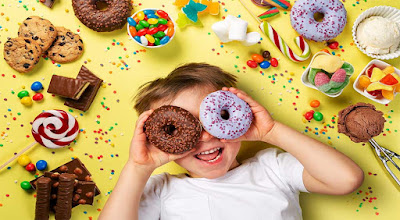Sugar Makes you Hyper - Debunked!
Who doesn't love a little sugar? For decades, our parents and media all over have made us believe that
sugar has made us hyper and overexcited.
What if I tell you, this is a medical myth just waiting to be busted, and sugar has actually no real effect
on being hyperactive and it is all just a placebo effect?
A 1973 study by an allergist Benjamin Feingold, M.D., supported a diet free of sugar, artificial flavoring,
and food coloring to treat hyperactivity, after which parents and media advocated the myth that
sugar causes hyperactivity.
An explanation about sugar leading to hyperactivity was also backed by the assumption that sugar
spikes blood glucose, an effect of hyperglycemia. However, symptoms of hyperglycemia do not
indicate hyperactivity.
A 1994 double-blind research study, where families were put on different diets for three-week time
periods indicated that the cognitive and behavioral effects of children could not be attributed to the
consumption of sugar.
It is the parental expectation of their children that sugar causes hyperactivity which leads to them
observing the same. For example, kids at a party are bound to have sugary snacks, surrounded by
relaxed behavioral rules and activities for enjoyment. The environment is bound to get kids to
be hyperactive and energized, and the parent’s belief that their children would be hyperactive
after sugar consumption actually leads to the placebo.
Similarly, the media has an important role to play in the perception of sugar being connected to
hyperactivity, from cartoons to series to movies, the audio-visual representation of sugar and its
effects has led people to believe that sugar hyperactivity is a fact.
Anything done in excess is unhealthy and has negative effects. Similarly, the studies do not mean
that sugar doesn’t have a negative effect on the body, excess consumption of sugar will lead to
obesity, tooth decay, blood pressure, etc.

Comments
Post a Comment